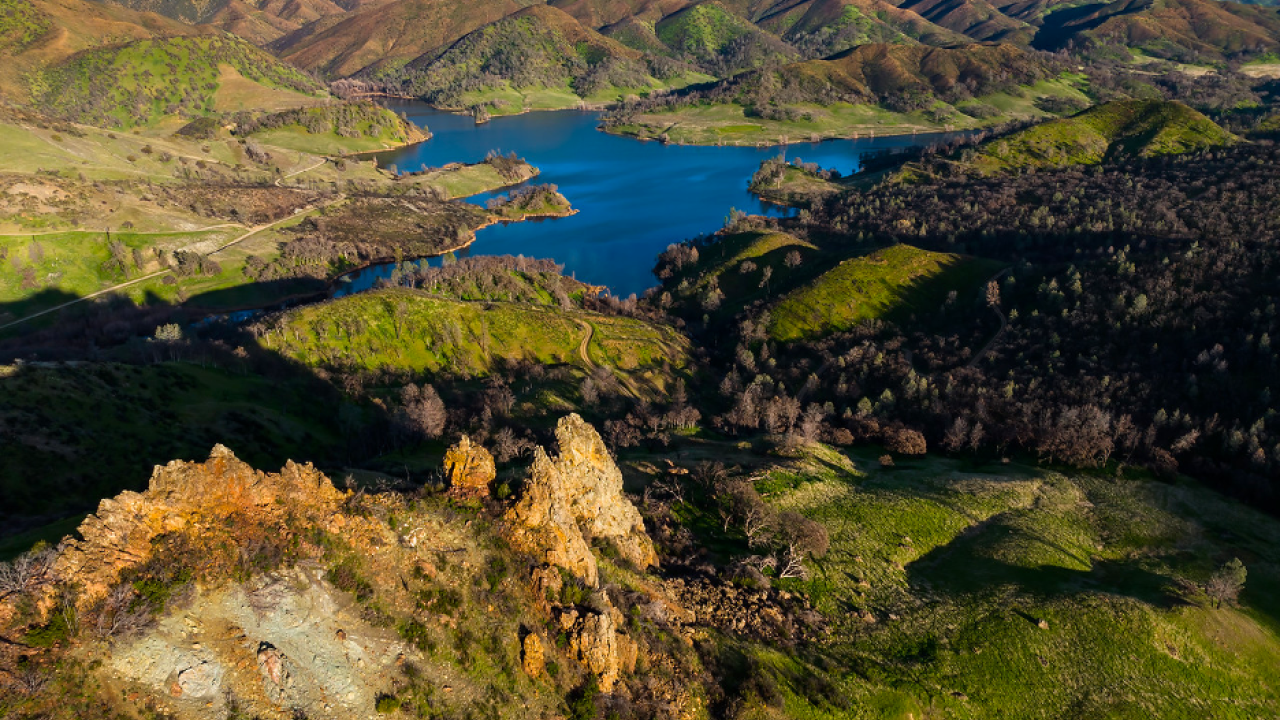This blog is based on a story originally published on the UC Davis College of Agricultural and Environmental Sciences website. Access the original story here.
Three UC Davis students have launched Hands on the Land, a new student organization working on landscape renewal through repairing and restoring native ecosystems. Alana Luzzio, a first-year ecology graduate student and one of the group’s co-founders, says the goal is to reconnect people to the land, community and each other while keeping ecological and climate goals in mind.
“As a society, we’ve kind of lost our connection to the land,” Luzzio said.
“This land wants you to be there and wants you to engage. There’s a manzanita tree that overlooks the work site, it feels representative of what we’re trying to do and achieve our goals for them to survive.” — Margot Flynn, first-year graduate student

Luzzio, along with co-founders Margot Flynn, a first-year ecology graduate student, and Sophia Simon, a first-year ecology doctoral student, started the group during the winter quarter and there’s currently more than two dozen graduate and undergraduate students from various academic backgrounds participating. Students take monthly trips to work on restoring parts of the 7,000-acre McLaughlin Natural Reserve, which is located about two hours northwest of Davis and managed by UC Davis. The land is home to a variety of soils, species and vegetation including oak woodlands, serpentine chaparral and grasslands.
“What makes McLaughlin so special is that it’s made up of a vast number of ecotypes, and each deserves its own attention and care,” Luzzio said.
Ecologists have been working to repair and nurture ecosystems that have been disturbed by human activity and environmental changes.
“This land wants you to be there and wants you to engage," said Flynn. “There’s a manzanita tree that overlooks the work site, it feels representative of what we’re trying to do and achieve our goals for them to survive.”
Preparing the land to be resilient to wildfire
Making the land more resilient to wildfire is a focus of the restoration work. Students are clearing downed trees that were damaged by a 2015 wildfire and cataloging the reserve’s native species. Reserve Director Cathy Koehler says during the past 15 years they’ve noticed that getting rid of non-native, invasive species is key to helping reduce the destruction from a wildfire.
“Through our land management actions, we have seen that the conversion back to native-dominated prairies has changed the way the fire goes across the land,” Koehler said. “If we get enough hands on the land, restore native species and really reduce or eliminate the non-native species that have changed how vegetation burns in California's woodland understories and in what we are currently calling annual grassland, I'm convinced we can reduce the violence of how fire is affecting the landscape right now.”
Building an engaged community
In addition to working on developing local, climate-based land management solutions, the group is also building an engaged community dedicated to taking care of natural lands for a brighter future. To help them do that, they’re hoping to raise $5,000 through UC Davis Crowdfund to cover the costs to travel to the reserve, as well as safety equipment for research projects, to host community workshops and produce outreach materials for local schools in Lake County.
“I just want everybody to love the land like I do,” Luzzio said.
This blog posted by UC Davis Intern Hayley Morris.
Media Resources
More photos by Volkmar Heinrich, associate professor in biomedical engineering are available here.
